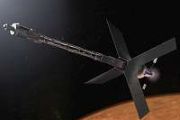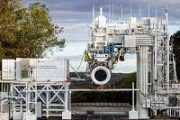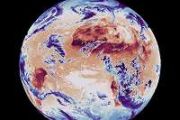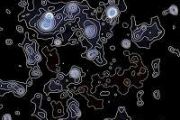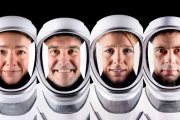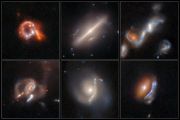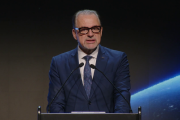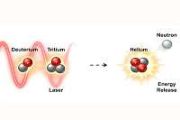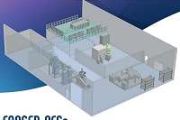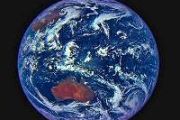
Copernical Team
Kleos' first two Patrol satellites deployed from D-Orbit Transfer vehicle
 Kleos Space S.A (ASX:KSS, Frankfurt:KS1) has confirmed that the first two Patrol Mission satellites (KSF2-C and KSF2-D) have been successfully deployed from D-Orbit's orbital transfer vehicle, ION Satellite Carrier, and contact has been established. The remaining two Patrol satellites (KSF2-A and KSF3-B) are expected to be deployed into a different orbit from the transfer vehicle in the coming w
Kleos Space S.A (ASX:KSS, Frankfurt:KS1) has confirmed that the first two Patrol Mission satellites (KSF2-C and KSF2-D) have been successfully deployed from D-Orbit's orbital transfer vehicle, ION Satellite Carrier, and contact has been established. The remaining two Patrol satellites (KSF2-A and KSF3-B) are expected to be deployed into a different orbit from the transfer vehicle in the coming w Race is on for China's first domestic satellite listed firm
 China's commercial aerospace sector has embraced a wave of IPO plans recently, as private enterprises hasten to "aim for the stars" and become the country's first domestically listed aerospace company.
In March, Chang Guang Satellite Technology Co, the country's first commercial remote sensing satellite firm, is planning to file an IPO, according to the website of Haitong Securities.
China's commercial aerospace sector has embraced a wave of IPO plans recently, as private enterprises hasten to "aim for the stars" and become the country's first domestically listed aerospace company.
In March, Chang Guang Satellite Technology Co, the country's first commercial remote sensing satellite firm, is planning to file an IPO, according to the website of Haitong Securities. Satellites improve national reporting of greenhouse gases

With the climate crisis continuing to tighten its grip, nations around the world are making efforts to reduce emissions of climate warming gases. To track action, countries report their greenhouse gas emissions to the UNFCCC – the body responsible for driving global action to combat climate change. While accurate and consistent reporting is crucial, very few countries exploit Earth observation satellite data to check and improve their estimates. Scientists have now devised new ways of comparing national greenhouse gas inventories with independent measurements taken from space.
NASA's Fermi hunts for gravitational waves from monster black holes
 Our universe is a chaotic sea of ripples in space-time called gravitational waves. Astronomers think waves from orbiting pairs of supermassive black holes in distant galaxies are light-years long and have been trying to observe them for decades, and now they're one step closer thanks to NASA's Fermi Gamma-ray Space Telescope.
Fermi detects gamma rays, the highest-energy form of light. An i
Our universe is a chaotic sea of ripples in space-time called gravitational waves. Astronomers think waves from orbiting pairs of supermassive black holes in distant galaxies are light-years long and have been trying to observe them for decades, and now they're one step closer thanks to NASA's Fermi Gamma-ray Space Telescope.
Fermi detects gamma rays, the highest-energy form of light. An i How to compete with robots
 When it comes to the future of intelligent robots, the first question people ask is often: how many jobs will they make disappear? Whatever the answer, the second question is likely to be: how can I make sure that my job is not among them?
In a study just published in Science Robotics, a team of roboticists from EPFL and economists from the University of Lausanne offers answers to both que
When it comes to the future of intelligent robots, the first question people ask is often: how many jobs will they make disappear? Whatever the answer, the second question is likely to be: how can I make sure that my job is not among them?
In a study just published in Science Robotics, a team of roboticists from EPFL and economists from the University of Lausanne offers answers to both que DLR research observatory to be named after Johannes Kepler
 Johannes Kepler Observatory - this will be the name of the new research observatory of the German Aerospace Center (Deutsches Zentrum fur Luft- und Raumfahrt; DLR). Work is currently underway to put the facility into operation at the Empfingen Innovation Campus. The observatory is a core research facility for the DLR Institute of Technical Physics. In future, it will be used to determine the tra
Johannes Kepler Observatory - this will be the name of the new research observatory of the German Aerospace Center (Deutsches Zentrum fur Luft- und Raumfahrt; DLR). Work is currently underway to put the facility into operation at the Empfingen Innovation Campus. The observatory is a core research facility for the DLR Institute of Technical Physics. In future, it will be used to determine the tra Webb's coldest instrument reaches operating temperature
 With help from a cryocooler, Webb's Mid-Infrared Instrument has dropped down to just a few degrees above the lowest temperature matter can reach and is ready for calibration.
The James Webb Space Telescope will see the first galaxies to form after the Big Bang, but to do that its instruments first need to get cold - really cold. On 7 April, Webb's Mid-Infrared Instrument (MIRI) - a joint d
With help from a cryocooler, Webb's Mid-Infrared Instrument has dropped down to just a few degrees above the lowest temperature matter can reach and is ready for calibration.
The James Webb Space Telescope will see the first galaxies to form after the Big Bang, but to do that its instruments first need to get cold - really cold. On 7 April, Webb's Mid-Infrared Instrument (MIRI) - a joint d Hubble sheds light on origins of supermassive black holes
 Astronomers have identified a rapidly growing black hole in the early universe that is considered a crucial "missing link" between young star-forming galaxies and the first supermassive black holes. They used data from NASA's Hubble Space Telescope to make this discovery.
Until now, the monster, nicknamed GNz7q, had been lurking unnoticed in one of the best-studied areas of the night sky,
Astronomers have identified a rapidly growing black hole in the early universe that is considered a crucial "missing link" between young star-forming galaxies and the first supermassive black holes. They used data from NASA's Hubble Space Telescope to make this discovery.
Until now, the monster, nicknamed GNz7q, had been lurking unnoticed in one of the best-studied areas of the night sky, Breaking news from the dawn of the universe
 An international effort led by astrophysicists at the Niels Bohr Institute, University of Copenhagen, and the Technical University of Denmark, have identified a distant object with properties that lie in-between those of a galaxy and those of a so-called quasar. The object can be seen as the ancestor of a supermassive black hole, and it was born relatively soon after the Big Bang. Simulations ha
An international effort led by astrophysicists at the Niels Bohr Institute, University of Copenhagen, and the Technical University of Denmark, have identified a distant object with properties that lie in-between those of a galaxy and those of a so-called quasar. The object can be seen as the ancestor of a supermassive black hole, and it was born relatively soon after the Big Bang. Simulations ha Digging into drill data takes perseverance
 Drilling is on hold while the rover focuses on driving, so the sampling team is off studying the data we have acquired so far. What kind of information do we get from the drill, and how do the rocks we have drilled so far compare to each other?
One of the first things we look at is how difficult it was for the drill to make progress through the rock. The rover has a rotary percussive drill
Drilling is on hold while the rover focuses on driving, so the sampling team is off studying the data we have acquired so far. What kind of information do we get from the drill, and how do the rocks we have drilled so far compare to each other?
One of the first things we look at is how difficult it was for the drill to make progress through the rock. The rover has a rotary percussive drill 







